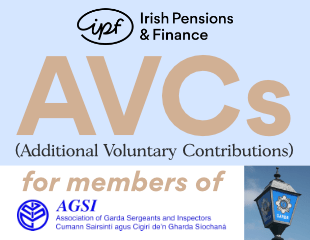The Minister for Justice and Equality, Frances Fitzgerald TD, today welcomed the passage of the Garda Síochána (Policing Authority and Miscellaneous Provisions) Bill 2015 through both Houses of the Oireachtas.
The Bill provides for the establishment of the new independent Policing Authority to oversee the governance, structures and performance of the Garda Síochána in the policing area.
It is intended that the Authority will be formally established on 1 January 2016.
Minister Fitzgerald said: “The establishment of an independent Policing Authority represents a key element of the Government’s comprehensive programme of justice reform and delivers on the commitment I made, when I assumed office, to deliver a sea-change in the oversight of policing in the State.”
The Minister added: “The Authority will provide a new independent and dedicated forum for the public oversight of policing services in Ireland. Its establishment is timely in the context of the ongoing and extensive reform programme that is underway in the Garda Síochána. The Government is committed to ensuring that An Garda Síochána is equipped to meet the challenges of modern policing and that it is supported in this by a robust governance framework, to which the Authority will be a major addition.”
The Authority will have extensive functions that will allow it to oversee the governance, structures and performance of the Garda Síochána in the policing area.
Under the legislation, the Authority will, in particular, have responsibility for:
· overseeing the performance by the Garda Síochána of its policing functions under a broad range of headings;
· nominating persons for appointment by the Government to the posts of Garda Commissioner and Deputy Garda Commissioner;
· appointing persons to the ranks of Garda Superintendent, Chief Superintendent and Assistant Commissioner – and removing them for reasons related to policing services;
· appointing persons to senior positions within the Garda civilian staff;
· determining Garda priorities in relation to policing services;
· approving the 3 year Garda strategy statement;
· approving the annual Garda policing plan;
· establishing a Garda code of ethics; and
· promoting and supporting the continuous improvement of policing in the State.
The Authority will hold a number of public meetings with the Garda Commissioner at which the public can attend and the media can broadcast.
The Bill also enables the Authority to request the Garda Síochána Ombudsman Commission and the Garda Síochána Inspectorate to initiate an inspection or inquiry or to examine Garda practices or procedures.
The Authority will consist of a Chairperson and eight ordinary members to be appointed by the Government. Josephine Feehily, the distinguished former Chairman of the Revenue Commissioners has already been nominated by the Government to be the first Chair of the Policing Authority. The eight Ordinary Members will be formally designated to be members of the Authority once the legislation is commenced next week.
A Transition Group, with representation from the Department of Justice and Equality, the Policing Authority and An Garda Síochána, has been actively steering the transition from current arrangements to the new environment. A budget of €2.7m has been provided for the Authority for 2016.
National security is a vital function of Government. Under the new oversight arrangements, the Garda Commissioner will report to the Policing Authority in respect of policing matters and to the Minister for Justice in relation to security matters.
The Authority will be accountable to the Public Accounts Committee and to other Committees of the Oireachtas.
The Bill will now go to the President to be signed into law. It will be available on the Houses of the Oireachtas website: www.oireachtas.ie.
ENDS…/
Note for Editors
Background
The establishment of a Policing Authority is a key element of the Government’s programme of justice reform and was highlighted as a priority in the Statement of Government Priorities 2014 – 2016. A Cabinet Committee on Justice Reform, chaired by An Taoiseach, was established in April 2014 and has overseen the development of the legislative proposals for the new Authority.
The views of the public on the proposal to establish a new Authority were sought by way of a Government public consultation process that took place in May 2014. In addition, a consultation seminar on justice reform was hosted by the Minister for Justice and Equality on 20 June 2014 at Farmleigh House, attended by some 100 participants. The purpose of the seminar was to provide a platform for key stakeholders and persons with an interest in Garda reform to discuss elements of the Government justice reform programme.
Following a public consultation process and a number of hearings with interested parties, the Joint Oireachtas Committee on Justice, Defence and Equality published a report of its review of the Garda Síochána Act 2005 in October 2014. A number of the report’s recommendations relate to the establishment of a new Policing Authority and the Committee’s recommendations were taken into account in the drafting of the legislation.
The provisions of the Bill are generally in line with the Scheme of a Bill published by the Minister in November 2014. The Joint Oireachtas Committee considered the Scheme, by way of pre-legislative scrutiny, and broadly welcomed its proposals.
Ms. Josephine Feehily was nominated as the Chairperson-designate of the Authority following a selection process run by the Public Appointments Service. The Service has recently completed a selection process for the ordinary membership of the Authority..
Functions of the Authority
The main function of the Authority will be to oversee the performance by the Garda Síochána of its policing functions which will include, for example:
· keeping under review the adequacy of—
Ø the corporate governance arrangements and structures,
Ø the arrangements for the recruitment, training and development of the members and members of the civilian staff,
Ø the mechanisms in place for the measurement of performance and accountability of members and civilian staff, and
Ø the arrangements for managing and deploying the available resources;
· regular meetings with the Garda Commissioner, at least 4 of which will be held in public each year and broadcast;
· nominating persons for appointment, and recommending the removal in certain circumstances, by the Government to the posts of Garda Commissioner and Deputy Garda Commissioner;
· appointing persons to the ranks of Superintendent, Chief Superintendent and Assistant Commissioner (and remove them for reasons related to policing services);
· determining (with the agreement of the Minister) Garda priorities in relation to policing services;
· approving (with the agreement of the Minister) the 3 year Garda strategy statement;
· approving (with the agreement of the Minister) the annual policing plan;
· establishing a Garda code of ethics;
· promoting and supporting the continuous improvement of policing in the State;
· accounting, as appropriate, to the Public Accounts Committee and to other Oireachtas Committees;
· requesting the Garda Síochána Ombudsman Commission and/or the Garda Síochána Inspectorate to initiate an inspection or inquiry or to examine Garda practices or procedures;
· monitoring, assessing and reporting to the Minister on the measures taken by the Garda Síochána in relation to recommendations made in a report of the Garda Síochána Inspectorate; and
· exercising the current functions of the Minister in relation to Joint Policing Committees.







